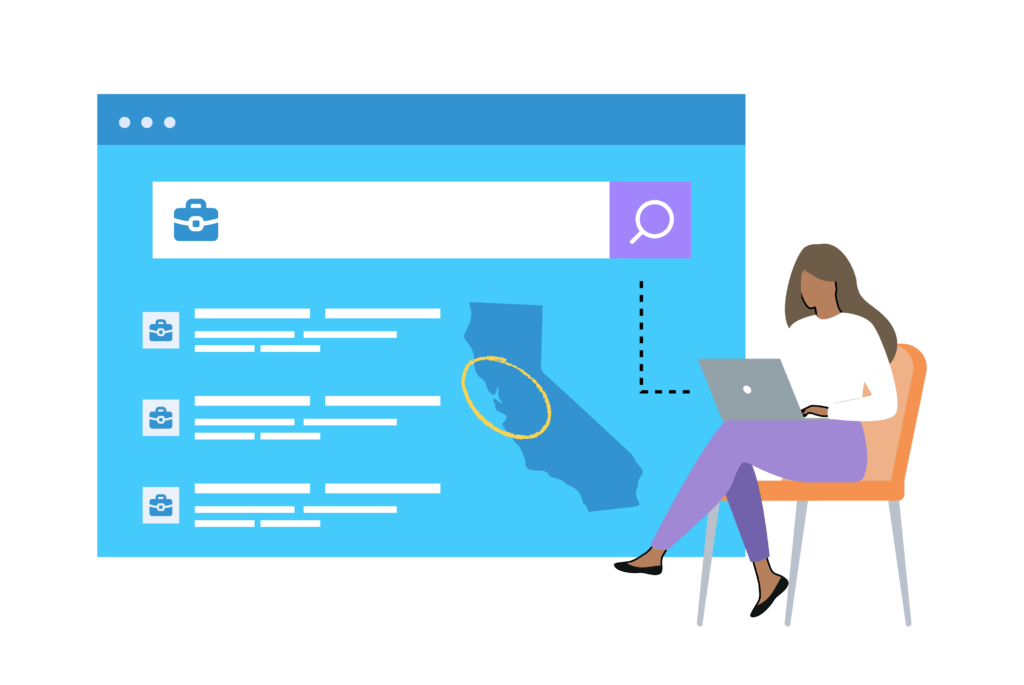Let’s talk about resumes. You know, that one-page document that’s supposed to capture your entire professional soul and convince someone to hire you? Yeah, it’s a lot of pressure. For years, I thought a resume was all about listing your degrees, technical skills, and job titles—like a grocery list of your career. But here’s the thing I learned the hard way: a winning resume isn’t just about what you’ve done. It’s about who you are. And that’s where soft skills come in.
I remember sitting in a coffee shop in Seattle back in 2019, my laptop open, staring at a blank resume template. I’d just been laid off from a tech startup (ouch), and I was trying to figure out how to make myself stand out. My coding skills were solid, but so were everyone else’s in that oversaturated market. I felt like a needle in a haystack. Then, a mentor—let’s call her Sarah—leaned over her latte and said, “You’re not just a programmer. You’re a problem-solver. You’re a team player. Put that on your resume.” It was a lightbulb moment. Soft skills. Those intangible, human qualities that make you, well, you.
So, what are soft skills, and why do they matter? Let’s dive in.
What Are Soft Skills, Anyway?
Soft skills are the personal attributes that help you work well with others and navigate the messy, human side of any job. Think communication, teamwork, adaptability, problem-solving, or even just being a decent listener. Unlike hard skills—say, knowing how to code in Python or operate a forklift—soft skills are harder to quantify. They’re not something you can slap a certification on, but they’re what make you a great colleague, leader, or innovator.
Here’s a quick distinction: hard skills get you in the door; soft skills keep you in the room. Employers love candidates who can do the job, but they adore candidates who can do the job while making everyone else’s day better. Ever wonder why some people with mediocre technical skills land amazing gigs? It’s because they’re masters of the soft stuff—connecting with people, resolving conflicts, or staying calm under pressure.
When I was revamping my resume that rainy Seattle afternoon, I started thinking about my soft skills. I’d led a cross-functional team to launch a product under a tight deadline. That wasn’t just “project management.” That was leadership, communication, and staying cool when the servers crashed at 2 a.m. Suddenly, my resume wasn’t just a list of coding languages. It was a story about how I showed up in tough moments.
Why Soft Skills Make Your Resume Pop
Let’s be real—hiring managers are drowning in resumes. They’re skimming through hundreds of them, bleary-eyed, probably on their third cup of coffee. If your resume looks like everyone else’s, it’s going straight to the “maybe” pile (or worse, the trash). Soft skills are your secret weapon to stand out.
Why? Because they show you’re more than a checklist of qualifications. They prove you can handle the real-world chaos of a workplace. Can you collaborate with a team that’s spread across three time zones? Can you adapt when the client changes their mind at the last minute? Can you explain complex ideas without making everyone’s eyes glaze over? Those are the things employers are dying to see.
I’ll never forget the time I interviewed for a role at a mid-sized tech firm. The job description was all about data analysis and SQL expertise, but during the interview, the hiring manager kept asking about how I handled disagreements or motivated my team. I shared a story about mediating a heated debate between two designers over a UI feature. We ended up with a better product and a stronger team. That story sealed the deal—not my SQL skills. Soft skills are your resume’s way of saying, “I’m not just good at my job; I’m good at being human.”
How to Weave Soft Skills Into Your Resume
Okay, so you’re sold on soft skills. But how do you actually get them onto your resume without sounding like a generic LinkedIn profile? (You know the ones: “I’m a passionate team player!” Yawn.) Here’s how to do it right, with a few tricks I’ve picked up along the way.
1. Start With Your Summary
Your resume’s summary or objective is prime real estate. It’s the first thing a hiring manager reads, so make it count. Instead of writing something vague like, “I’m a dedicated professional,” use this space to hint at your soft skills in a way that’s specific to you.
For example, when I applied for a project management role, my summary read: “Collaborative tech enthusiast with a knack for turning chaotic deadlines into successful launches by fostering open communication and creative problem-solving.” See what I did there? I didn’t just say “team player.” I showed how I collaborate and solve problems. It’s specific, it’s human, and it sets the tone for the rest of the resume.
2. Use Action Verbs in Your Experience
When you’re describing your work history, don’t just list your duties. Use strong, active verbs that showcase your soft skills in action. Instead of “worked on a team,” try “collaborated with a diverse team to deliver a $50K project ahead of schedule.” Instead of “handled customer complaints,” go with “resolved complex customer issues with empathy and clear communication, boosting satisfaction scores by 15%.”
Back in my startup days, I used to write boring bullet points like “managed team meetings.” Bleh. After Sarah’s advice, I switched to things like “facilitated weekly meetings, encouraging open dialogue and aligning team goals.” Same job, totally different vibe. It’s like putting a fresh coat of paint on a tired old house.
3. Tailor to the Job Description
Here’s a pro tip: every job posting is a treasure map. The description tells you exactly what soft skills the employer values. If the posting mentions “ability to work in a fast-paced environment,” that’s your cue to highlight adaptability. If it says “strong interpersonal skills,” weave in examples of your communication or relationship-building.
I once applied for a role that emphasized “cross-functional collaboration.” In my resume, I included a bullet point about how I “bridged communication gaps between engineering and marketing teams, resulting in a 20% faster product launch.” That wasn’t a coincidence—I was speaking their language. And guess what? I got the interview.
4. Consider a Skills Section
If you’ve got a lot of relevant soft skills, a dedicated “Skills” section can be a great addition. But don’t just list “communication” or “leadership” like it’s a grocery list. Be specific. For example: “Conflict resolution in high-pressure settings” or “Building rapport with diverse stakeholders.” It shows you’ve thought about what you bring to the table.
When I was job hunting, I included a skills section with things like “Simplifying complex technical concepts for non-technical audiences” and “Fostering inclusive team environments.” It gave hiring managers a quick snapshot of who I was, beyond my technical chops.
Mistakes to Avoid (Trust Me, I’ve Made Them)
Now, let’s talk about what not to do. I’ve made plenty of resume blunders in my time, and I’m here to save you from the same fate.
-
Don’t Overdo It With Generic Buzzwords. Calling yourself a “dynamic team player” or “results-driven leader” without context is like serving plain toast for dinner. It’s boring, and it doesn’t tell the employer anything meaningful. Back up your claims with examples. Instead of “great communicator,” say “delivered engaging presentations to clients, securing $100K in new contracts.”
-
Don’t Forget the Evidence. Soft skills need proof. If you say you’re adaptable, show it with a story, like how you pivoted a project when the budget got slashed. I once claimed I was “great at problem-solving” but didn’t provide examples. The hiring manager called me out in the interview, and I was left scrambling. Lesson learned.
-
Don’t Ignore Hard Skills. Soft skills are awesome, but they’re not the whole story. Your resume needs a balance. If you’re applying for a software engineering role, your coding skills still need to shine. Think of soft skills as the seasoning—they enhance the dish, but they’re not the main course.
Real-World Examples That Work
Want to see soft skills in action? Let’s look at a couple of resume snippets that nail it.
Example 1: Marketing Coordinator
-
“Orchestrated a social media campaign by uniting creative and analytics teams, increasing engagement by 30% through clear communication and shared goals.”
-
“Adapted messaging strategies on the fly during a product recall, maintaining brand trust and earning positive media coverage.”
This candidate doesn’t just say “teamwork” or “adaptability.” They show how they used those skills to make an impact.
Example 2: Customer Service Representative
-
“Resolved 95% of customer escalations by listening actively and proposing creative solutions, earning a 4.8/5 satisfaction rating.”
-
“Mentored new hires on empathy-driven service techniques, improving team performance by 10%.”
See the pattern? Specific, results-oriented, and human. That’s the sweet spot.
I’ll share one more personal example. When I landed my current role, a big part of my resume was a bullet point about how I “streamlined a chaotic bug-tracking process by fostering open dialogue between developers and QA, cutting resolution time by 25%.” It wasn’t just about the result—it was about how I got there: through communication and collaboration. The hiring manager later told me that bullet point was why they called me in.
A Quick Story: The Resume That Changed Everything
Let me take you back to that Seattle coffee shop one more time. After Sarah’s advice, I spent hours rewriting my resume. I didn’t just list my jobs; I told a story. I described how I’d rallied a team to meet an impossible deadline, how I’d calmed an angry client with a well-timed joke and a solution, how I’d learned to adapt when our startup’s priorities shifted overnight. It wasn’t perfect, but it felt like me.
I sent that resume out to a dozen companies. Within a week, I had three interviews. One of them led to a job offer that changed my career trajectory. All because I stopped treating my resume like a checklist and started treating it like a conversation.
Wrapping It Up: Your Resume, Your Story
Here’s the deal: your resume isn’t just a document. It’s your chance to show the world who you are. Soft skills are the key to making that happen. They’re the difference between a resume that gets tossed and one that gets you a callback. So, take a hard look at your experiences. What makes you a great teammate? A creative problem-solver? A calm head in a storm? Those are the stories your resume needs to tell.
Next time you’re updating your resume, channel your inner storyteller. Think about the moments when you showed up, not just as a worker, but as a human. Write them down. Polish them up. And don’t be afraid to let a little personality shine through—because that’s what makes you unforgettable.
What’s one soft skill you’re proud of? And how are you going to showcase it on your resume? Go grab a coffee, open that laptop, and start writing. You’ve got this.

